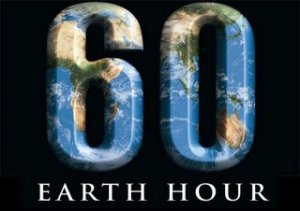U.N. Rio+20 Final Decisions are made Secret
June 21, 2012
By CHRISTOPHER MONCKTON | CLIMATE DEPOT | JUNE 21, 2012
RIO DE JANEIRO – In a shock move, officially-accredited non-government delegates who had traveled thousands of miles to attend the UN’s Rio+20 sustainable development conference in Brazil have been refused all access to the central negotiating text.
This key document, containing all of the environmental conference’s decisions, is now restricted to governmental delegates only.
The UN’s panic decision to classify the Rio negotiating text follows CFACT’s Climate Depot revelation at the UN climate conference in Durban in 2011 of the then-public Durban draft, whose contents the world’s news media had failed to report.
CFACT’s exposure of the strange proposals in the Durban text – which gave “Mother Earth” the right to sue Western nations in a new “International Climate Court”, and suggested that CO2 concentration should be halved (which would wipe out most plant and animal species on Earth) – led to the hasty abandonment of half of the text the day before negotiations were concluded.
According to WordPress, which hosts 500,000 blog postings on all subjects worldwide every day, the WattsUpWithThat.com blog posting that summarized the Durban draft received more hits than any other posting that day. The original 2011 article first appeared at Climate Depot and was also linked on the Drudge Report for several days.
It is known that the Rio text includes several items dropped from the Durban text, including proposals for the UN to levy a 2% tax on all financial transactions worldwide, which would cripple the financial markets by imposing costs many times the profits on each transaction.
A senior UN official, who did not want to be named and asked for CFACT’s video camera to be turned off, revealed the following facts to CFACT’s representatives here in Rio:
There is no public UN documentation center at Rio, though such centers were always available at previous UN conferences.
Mr. Olafsson, a deputy Secretary General of the UN, had issued orders to all staff, presumably with the authority of Secretary-General Ban Ki-Moon, that the Rio negotiating text was now classified and was to be refused to all officially-accredited delegates from non-government organizations.
Delegates wishing to complain about the secrecy at the Rio conference had to make their complaint to the UN offices at the Rio conference center. The UN offices, however, were in a building for which special “secondary passes” were required. Delegates from non-government organizations were not entitled to secondary passes unless there were exceptional circumstances.
Copies of the negotiating text could be released at the request of a government delegate. However, for the first time, access to the plenary session at which the negotiations are taking place is also restricted. Accredited representatives of non-government organizations are not permitted to attend the plenary sessions.
Copies of the current text were also classified on the Rio conference’s official website.
Delegates would find “RESTRICTED ACCESS” (Acesso Restrito) signs all over the conference center. Freedom of movement within the conference, even for accredited representatives, was no longer permitted.
The official added that the UN has become acutely sensitive to criticism, particularly because of a number of financial and sexual scandals at the UN’s plush headquarters in New York, many of which had not been exposed in the mainstream news media. The official thought it quite likely that the Rio negotiating text had been classified because the Durban text, once CFACT had released it, had proven to be such a grave embarrassment to the UN and to the participating governments, most of whose negotiators did not actually read the long, diffuse texts before agreeing to them.
Marc Morano, publisher of Climate Depot, has attended many UN conferences and is in Rio, said: “This censorship by the UN is without precedent. The public has had access to these documents at previous UN summits. This latest development makes a mockery of any UN claim to ‘transparency.’”


